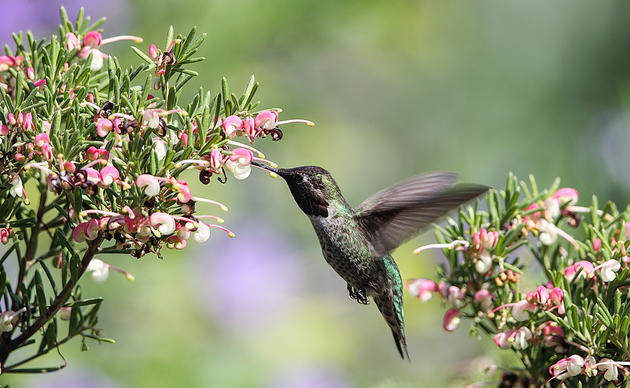You may have heard the news last week that Apple is investing $850 million in a solar project to power its new headquarters and stores, but you might also have been confused to learn that Audubon California and a bunch of other conservation groups are opposed to the idea. Well, as usual, the reality is a little more complicated than the news reports indicate. While Audubon California is completely supportive of Apple’s efforts (and those of other major U.S. companies) to move away from fossil fuels, this particular project in Monterey County, which has been in the works for some time, poses some substantial risks to birds. (Swainson's Hawk photo courtesy the USFWS)
Research shows that global warming will put 170 California birds at risk of extinction in the coming decades, so it is imperative that we reduce the global greenhouse emissions that are driving these changes in the environment.
“We appreciate the leadership of Apple in being a worldwide example in using renewable energy for their campus and stores rather than energy from coal and oil,” says Garry George, Audubon California’s renewable energy director. “This is an important statement to the world.”
While we need renewable energy, and we need it fast, there are some places that are simply inappropriate for this. The California Solar Flats project in Monterey County that Apple is investing in will use up about 4,000 acres of high quality bird habitat. Among the many sensitive species that will be impacted are the Swainson’s Hawk, Golden Eagle, Bald Eagle, Mountain Plover, Prairie Falcon, Yellow-billed Magpie, Loggerhead Shrike, Lewis’s Woodpecker, and Tricolored Blackbird – and that’s just the start of the list of birds. There are also impacts to sensitive mammals and plants, as well.
Audubon California raised these and other concerns last year as part of a group of organizations that also included Sierra Club, Defenders of Wildlife, the Center for Biological Diversity, the California Native Plant Society, and the local Monterey Audubon Society. Our comments were specifically concerned with the county’s draft environmental impact report, which we believe failed to address the project’s many ecological implications.
“We applaud what Apple is doing, but we would ask them to consider buying energy from projects on disturbed lands that have little or no biological impacts before supporting development on lands that support rare and endangered species in California,” says George.
By Garrison Frost
Monthly Giving
Our monthly giving program offers the peace of mind that you’re doing your part every day.




